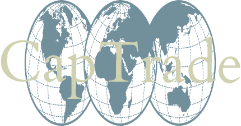ITC 2014 Year in Review
2014 was another eventful year at the ITC for antidumping (AD) and countervailing duty (CVD) cases with some 8 petitions filed, 14 investigations completed, and 23 sunset votes on 40 orders.
Down But Not Out: 8 AD/CVD Petitions Filed in 2014
The 8 AD/CVD petitions filed in 2014 were down from the 14 filed last year, but still above the 5 cases filed in 2012. Perhaps this was a sign of an improving economy or busy lawyers and consultants working on the 14 cases from 2013 that reached their final stages in 2014. A variety of products and countries were subject of petitions, including the usual array of steel products such as steel wire rod and line pipe, to consumer products such as shelves and sugar, to even the 53-foot containers used to ship other products under investigation! Countries ranged from regulars China, to rarities such as Trinidad & Tobago, against which a case has not been filed for over 10 years.
2014 Petitions Continue to Clear the Preliminary Hurdle
All 8 of the petitions filed in 2014 passed the preliminary stage at the ITC and should see their final disposition in 2015. With the exception of Glyphosphate (2010), no petition filed since 2009 has been denied an ITC final through a negative vote at the prelim. While all the petitions went forward, two countries, India and Turkey, obtained a negative finding in Certain Steel Nails on the basis of negligible imports.
China was the Most Targeted Country (Again) in 2014
Of the 8 petitions filed, China was the target for 5, retaining its position at the top of the table for another year. South Korea and Turkey were each targeted twice in 2014 with 7 countries targeted a single time each. Vietnam was targeted in 1 petition, and when combined with cases targeting China bringing the NME total to 6 out the 8 petitions (75%).
To AD or CVD or Both? – The Answer Is Both
Intensifying last year’s trend where 10 out of 14 petitions filed requested both AD & CVD relief, 2014 saw every petition include both both AD and CVD allegations. Since CVD cases were first filed against China in 2006, filing CVD in addition to an AD petition against China has become the norm. Of the 64 petitions filed against China since then, 45 of them involved CVD. Last year’s Chlorinated Isocyanurates petition and 2012’s Frozen Warmwater Shrimp petition were CVD-only petitions. The shrimp appeal for relief fell short, but the chlorinated isocyanurates CVD-only petition against China was successful leading to the imposition of a CVD order in 2014. It will be interesting to see if the success of the chlorinated isocyanurates CVD case will embolden others to file CVD-only petitions against countries already facing an AD order in 2015.
The Final Standings
The record of final phase investigations concluded in 2014 were more of a mixed bag than the preliminaries. 14 investigations had final votes in 2014, 8 of which received affirmative determinations, 4 went negative and 2, Oil Country Tubular Goods and Chlorinated Isocyanurates, had a split-country decisions. On a country specific basis, the ITC final votes went affirmative 65% of the time. In addition, 2 cases involving Russian ferrosilicon and Saudi oil country tubular goods were terminated by the Department of Commerce. Interestingly, the Grain-Oriented Electrical Steel Case against 7 countries went negative, while the Non-Oriented Electrical Steel Case against 6 countries went affirmative, proving that every petition is decided on a case-by-case basis.
The Sun Never Sets on Most Orders Reviewed in 2014
Appropriately, 23 sunset reviews were concluded in 2014 with 16 receiving full reviews and 7 being expedited. First reviews accounted for the majority of cases reviewed with 14, while second reviews numbered 7, and only 2 cases underwent a third review. All of these cases will continue to be reviewed in the future as only 4 cases were split decisions with respect to countries. PET film from Brazil, Lightweight Thermal Paper from Germany, and Electrolytic Manganese Dioxide from Australia orders were revoked in their first reviews and the Carbon and Certain Alloy Steel Rod from Ukraine order ended with its second review. If this all seems to be bleak news to potential sunset candidates for 2015, there is some hope as votes on three of these revocations occurred in December 2014, possibly illuminating a trend for the coming year.


